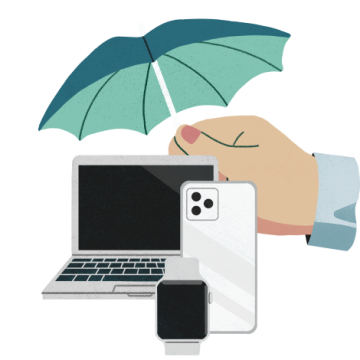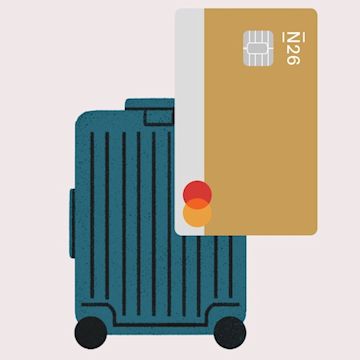
The ultimate guide about tipping etiquette in Europe
Tipping can seem like a complicated subject to navigate, but don’t let anxiety take you over. We break down some of the most common tipping practices across Europe to make your next holiday a breeze.
6 min read
- Tipping practices in Europe are different from what you might be used to. In casual settings, you normally just round up the bill. More formal establishments expect a specific percentage as a tip — usually between 5–10% in restaurants, bars, and taxis.
- It’s not only practical to learn the tipping etiquette of the places you’re visiting, but it also shows respect for the local culture and to the service staff.
- If you’re traveling to popular European destinations such as France, Germany, Italy, and Spain, knowing the local tipping customs will help you feel more confident and comfortable. Remember that tipping practices also vary within Europe.
Tipping can be a tricky or even contentious subject, and when you travel, things can get a little confusing. Is it mandatory? How much should I give? When do I tip and when do I not? Perhaps where you come from, tips are a way to show your appreciation for a job well done. Perhaps they’re a way for people working in service professions to make a fair wage. In the United States, for instance, tipping 15-20% on top of your final bill is usually expected, and leaving less than that can be seen as a sign of dissatisfaction with the service provided. In some countries, it’s also not uncommon for a gratuity or a service charge to be automatically included in your bill. And in more extreme cases, like Japan or China, tipping at all can be considered a sign of disrespect and is highly discouraged. Tipping in Europe is not as straightforward as you might think.. While in the past tipping a few euros could be considered a good rule of thumb, tipping traditions have evolved and vary from country to country. In order to help you navigate your next getaway, we’ve put together a comprehensive guide that will help you navigate those last moments after your meal.
Navigating tipping and service charges in Europe
Tipping vs. service charges
- Tipping: This is a voluntary gesture to show appreciation for excellent service, typically given in cash or added to your bill.
- Service charge: Often included in your bill, this fixed fee appears as “service compris” in France or “coperto” in Italy. It’s intended to compensate the service staff.
When to add an extra tip
- In countries like France and Italy, the service charge generally covers the costs of table service, so any additional tip you leave is a bonus.
- In Europe, tipping is seen as a reward for exceptional service rather than a compulsory practice. Even if your bill includes a service charge, you can still add a tip if you’re truly impressed.
- For country-specific tipping guidelines, consult local travel resources.
More tipping advice for travelers
- Watch the locals: Observe local tipping habits, if you get the chance. This can give you clues on what amount is appropriate.
- Cash is king: Although cards are widely used in Europe these days, cash tips are often preferred.
- When in doubt, ask: If it’s unclear whether a service charge is included, ask your server.
- Taxis and other services: For taxis or personal services like hairdressing, tipping 5–10% is standard. You can still adjust that amount based on the quality of the service.
Tipping in Spain
Tipping in Italy
Tipping in France
Tipping in Germany and Austria
Tipping in Scandinavian countries
Protect what you love
Get peace of mind for your smartphone with N26 Metal.
Explore insurances at N26 Metal
Explore the world with N26
With N26, the world is your oyster — and you’re in the driver’s seat when it comes to your finances. The N26 You travel card lets you enjoy your vacations, with an account that makes managing your money easy wherever you go.
Whether you’re traveling for pleasure, work, or studies, N26 is designed for modern travelers. Not only do you benefit from the best rates on international transfers, you’ll also get free card payments worldwide. And in addition to saving with your travel card, it comes with travel insurance, so you can have complete peace of mind even when you’re far from home.
N26 makes it easier to manage your finances while you’re traveling — discover how.
FAQs
In Europe, not tipping at all can be seen as disrespectful or insulting. Although tipping is usually optional, it’s customary in many countries to leave at least a little something for the service staff.
Yes, tipping customs can vary significantly across Europe. Urban and rural areas might have different practices, as do tourist spots compared to quieter places. In larger countries like Germany or Italy, different regions of the same country might have their own tipping norms. Do your best to adapt your tipping to these regional customs — it’s one important way of being a respectful visitor.
Find similar stories
BY N26Love your bank
Related Post
These might also interest youTRAVELWhy winter is the best season for budget travelFrom cheaper flights to luxury bargains, here’s why winter is the ultimate time to travel without breaking the bank.
4 min read
TRAVELTravel Expenses - Your guide to track them for a worry-free vacationTrack your expenses like a pro to avoid those post-vacation blues.
4 min read
TRAVELKeeping your money safe when traveling abroadHow to secure peace of mind for you and your wallet while you’re out exploring the world.
4 min read



